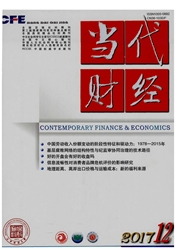

 中文摘要:
中文摘要:
在网络购物情境下,构建了以转换成本四维度为起点,以网购顾客后悔为中介的购后行为意向形成机理的概念模型。实证分析发现:网购顾客转换成本不包括关系转换成本;财务转换成本、程序转换成本对网购顾客后悔有显著的正向影响;只有风险成本和程序转换成本对重复购买意向有显著的正向影响,但对负面口碑相传均没有显著的直接影响;网购顾客后悔对负面口碑相传产生显著的正向影响。据此,提出了纠正提高转换成本,就一定能提高顾客满意和忠诚的错误认识;并提出了通过消费调查、售后回访等多种方式,来监测网购顾客后悔情绪的管理。
 英文摘要:
英文摘要:
In the context of online shopping, this study constructs a conceptual model of the for- mation mechanism of post-purchase behavioral intentions with the four-dimension switching cost as a starting point and the online customer regret as the mediator. The empirical study indicates that the switching costs of online customers contain no relational switching cost; the financial switching cost and the procedural switching cost have a significant positive influence on customer regret; only the risk cost and the procedural switching cost have a significant positive effect on repetitive purchase in-tentions, but no significant direct impact on negative WOM; online customer regret has a significant positive effect on negative WOM. Accordingly, this paper puts forward two suggestions: one is to cor-rect the misunderstanding that customer satisfaction and loyalty can surely be improved by improving the switching costs; the other is that consumer surveys, after-sale return visits and some other meth-ods earl be taken to monitor the management of the reset mood of online customers.
 同期刊论文项目
同期刊论文项目
 同项目期刊论文
同项目期刊论文
 期刊信息
期刊信息
